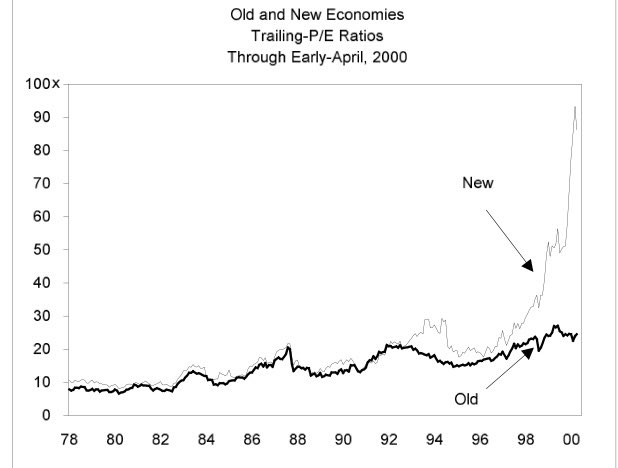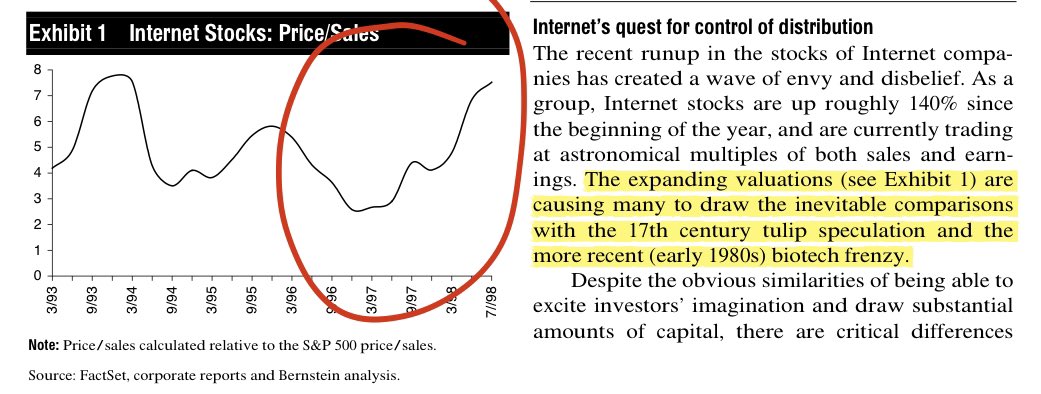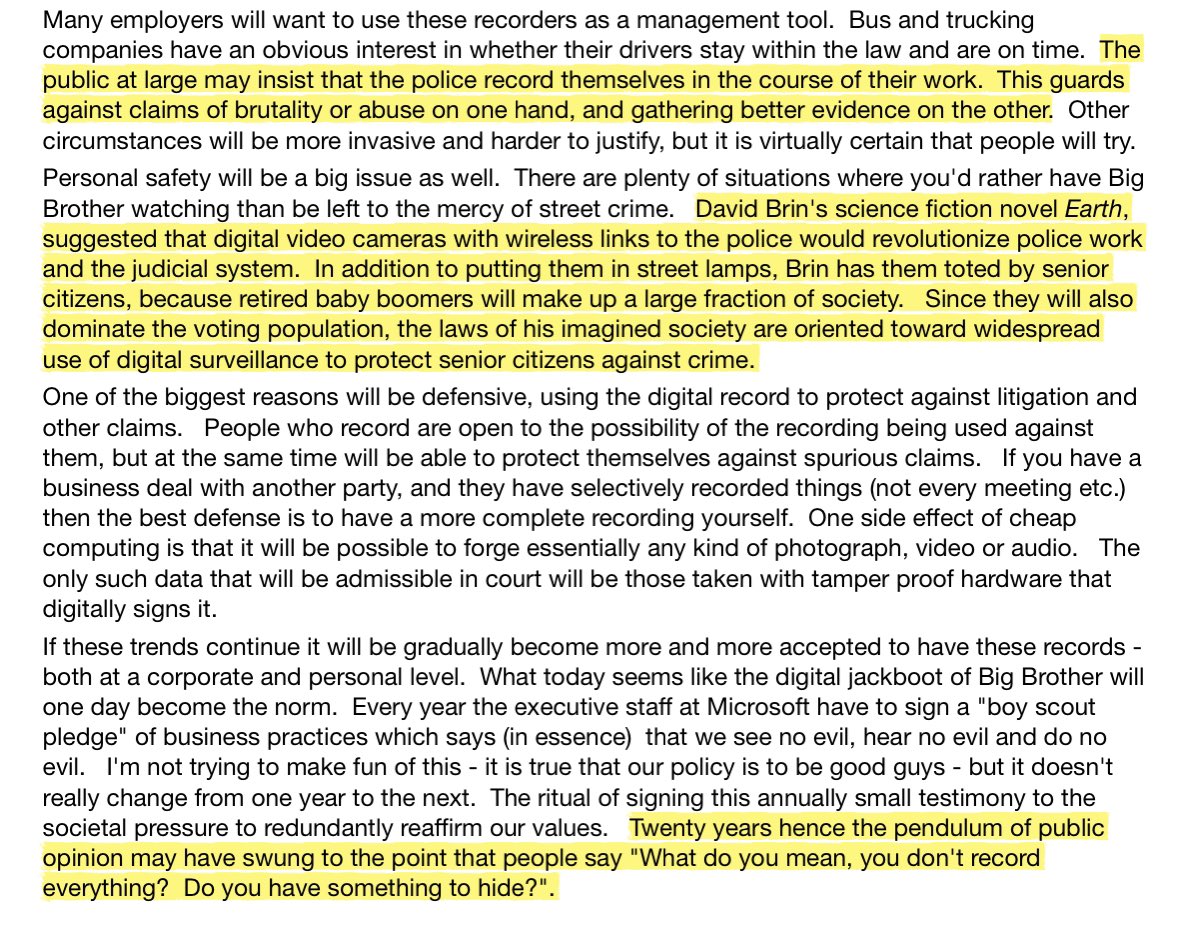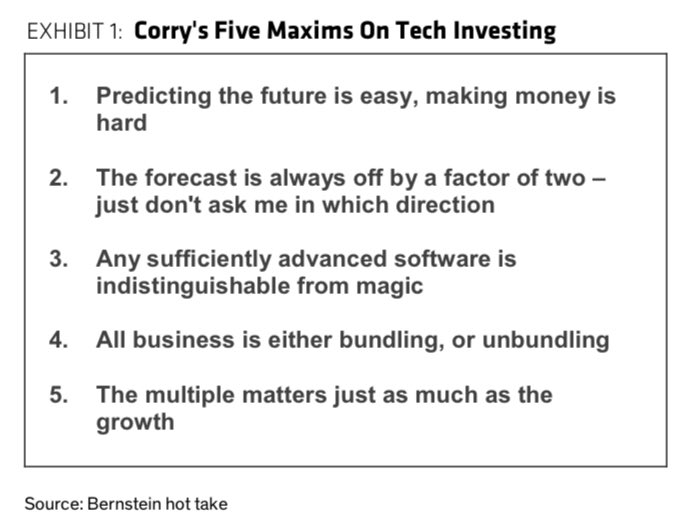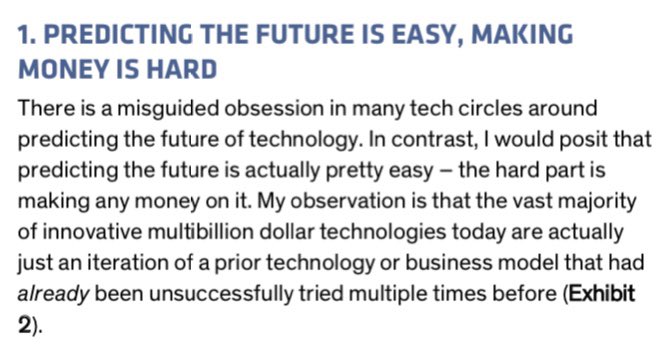1/ Thoughts on the Myth of the "First Mover"
This thread by @danrose stirred something I've been thinking about for a while - the myth of first mover advantage
To this day, most people assume Amazon Web Services was the first cloud computing service. This isn't quite true
This thread by @danrose stirred something I've been thinking about for a while - the myth of first mover advantage
To this day, most people assume Amazon Web Services was the first cloud computing service. This isn't quite true
https://twitter.com/DanRose999/status/1347677573900242944
2/ At its March 2006 launch, AWS was probably the 4th or 5th cloud service run by a Fortune 500 firm
HP launched its Flexible Computing Service in Nov 2005
Sun Grid went into beta in 2004
IBM launched "Linux Virtual Services" in 2002!
But AWS is the only one anybody remembers
HP launched its Flexible Computing Service in Nov 2005
Sun Grid went into beta in 2004
IBM launched "Linux Virtual Services" in 2002!
But AWS is the only one anybody remembers
3/ I'll focus on IBM here -
From the WSJ in *2002*: "Linux Virtual Services allows customers to run their own software on mainframes in IBM data centers and pay rates based largely on the amount of computing power they use"
wsj.com/articles/SB102…
Sounds like the cloud to me!
From the WSJ in *2002*: "Linux Virtual Services allows customers to run their own software on mainframes in IBM data centers and pay rates based largely on the amount of computing power they use"
wsj.com/articles/SB102…
Sounds like the cloud to me!
4/ Origin stories of AWS often cite how Bezo's uncanny prediction of computing becoming a utility, like an electric grid
But Bezos didn't invent this analogy - it was widespread by the early 2000s. Here's Lou Gerstner saying the same thing in 2003
But Bezos didn't invent this analogy - it was widespread by the early 2000s. Here's Lou Gerstner saying the same thing in 2003
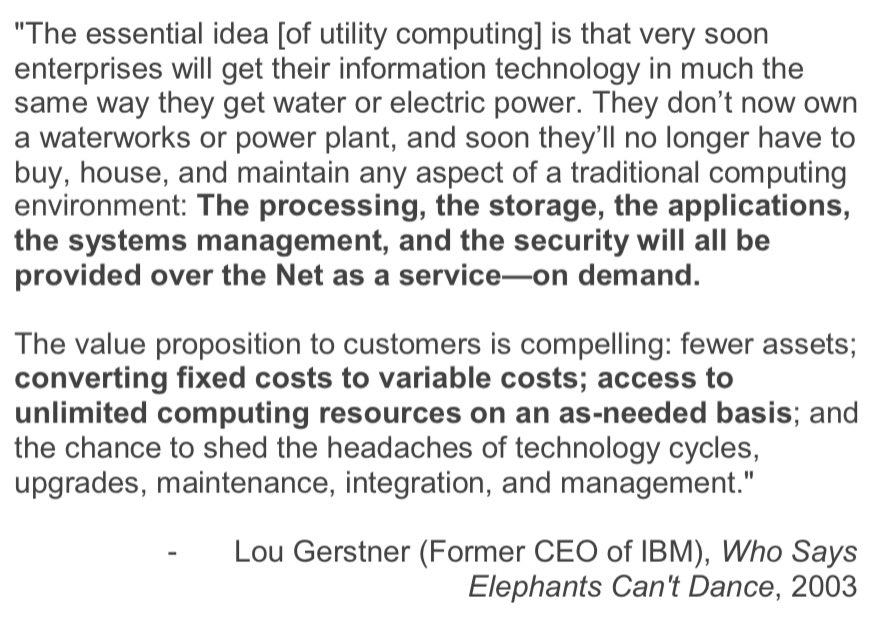
5/ So why did AWS succeed while IBM did not?
IMO there are no good explanations online. IBM LVS was quietly shut down in 2005-06. The exact date is unclear
Answering this became a personal project for me at Bernstein. I ended up cold-calling multiple former IBM product managers
IMO there are no good explanations online. IBM LVS was quietly shut down in 2005-06. The exact date is unclear
Answering this became a personal project for me at Bernstein. I ended up cold-calling multiple former IBM product managers
6/ The short answer: the innovator's dilemma
IBM LVS never achieved product market fit. IBM tried selling it to existing corporate customers. They didn't want it
And IBM's own incentives were misaligned - salespeople didn't want to cannibalize existing accounts
IBM LVS never achieved product market fit. IBM tried selling it to existing corporate customers. They didn't want it
And IBM's own incentives were misaligned - salespeople didn't want to cannibalize existing accounts

7/ In contrast, Amazon had no existing IT customers to cannibalize. They had to sell AWS to someone, or they wouldn't get paid
That's how to found their first best customers: independent software devs and startups, paying by credit card
That's how to found their first best customers: independent software devs and startups, paying by credit card
8/ The cloud was ultimately adopted bottoms up, not top down. AWS laddered up to enterprise customers from there
The result is 14 years later, AWS is a $50B business growing 30% a year, while IBM is a $70B business shrinking 3% a year
The result is 14 years later, AWS is a $50B business growing 30% a year, while IBM is a $70B business shrinking 3% a year
9/ What's the lesson here?
Being a first mover is overrated. Predicting the future is easy - plenty of people understood the future of cloud computing, even in 2003
The hard part was everything else. Timing matters. Execution matters. Incentives matter. Luck too!
Being a first mover is overrated. Predicting the future is easy - plenty of people understood the future of cloud computing, even in 2003
The hard part was everything else. Timing matters. Execution matters. Incentives matter. Luck too!
• • •
Missing some Tweet in this thread? You can try to
force a refresh

